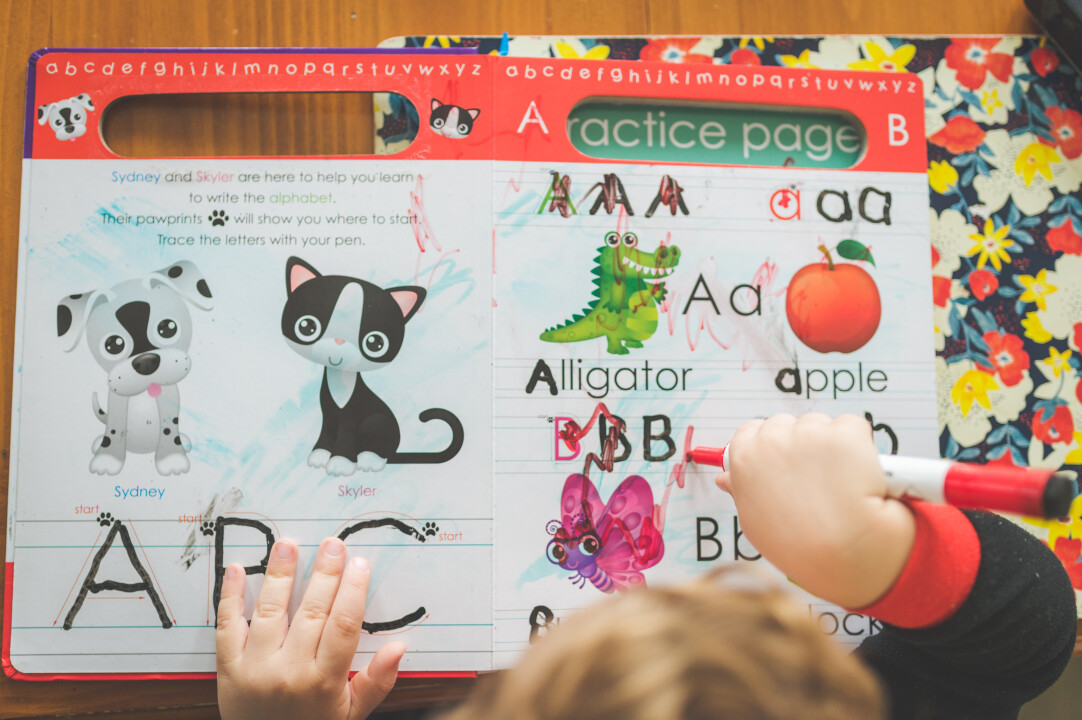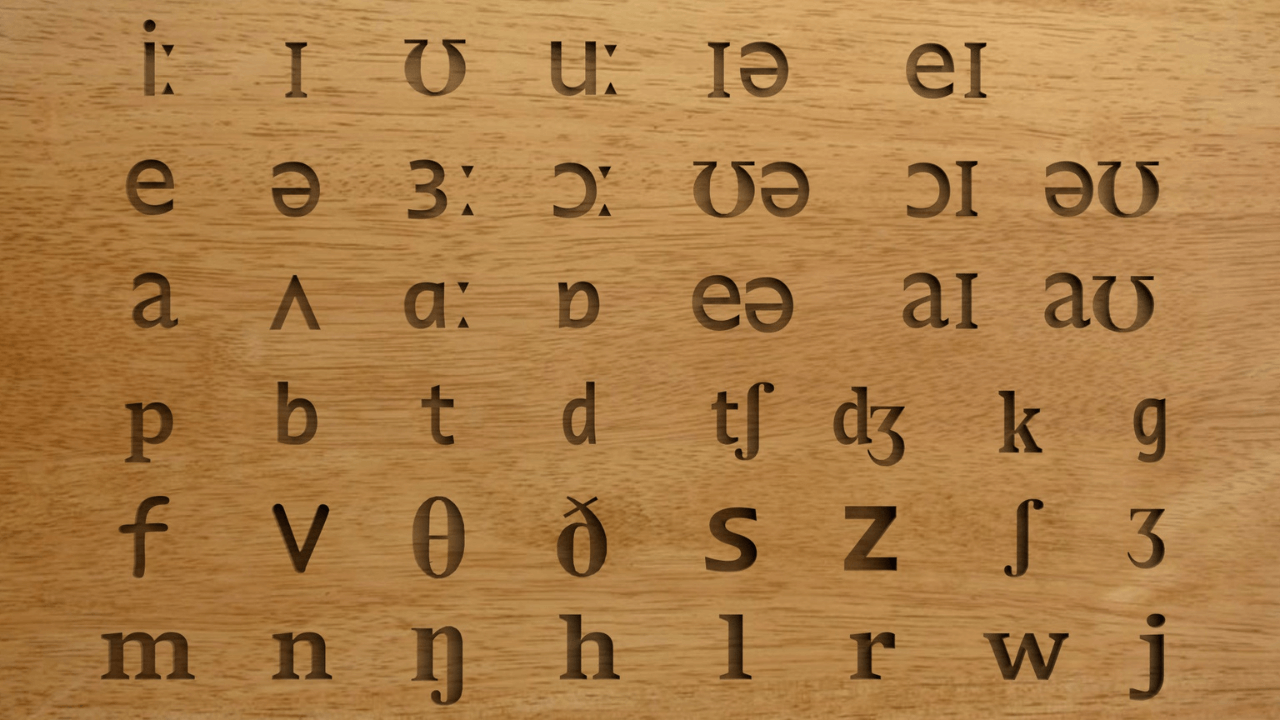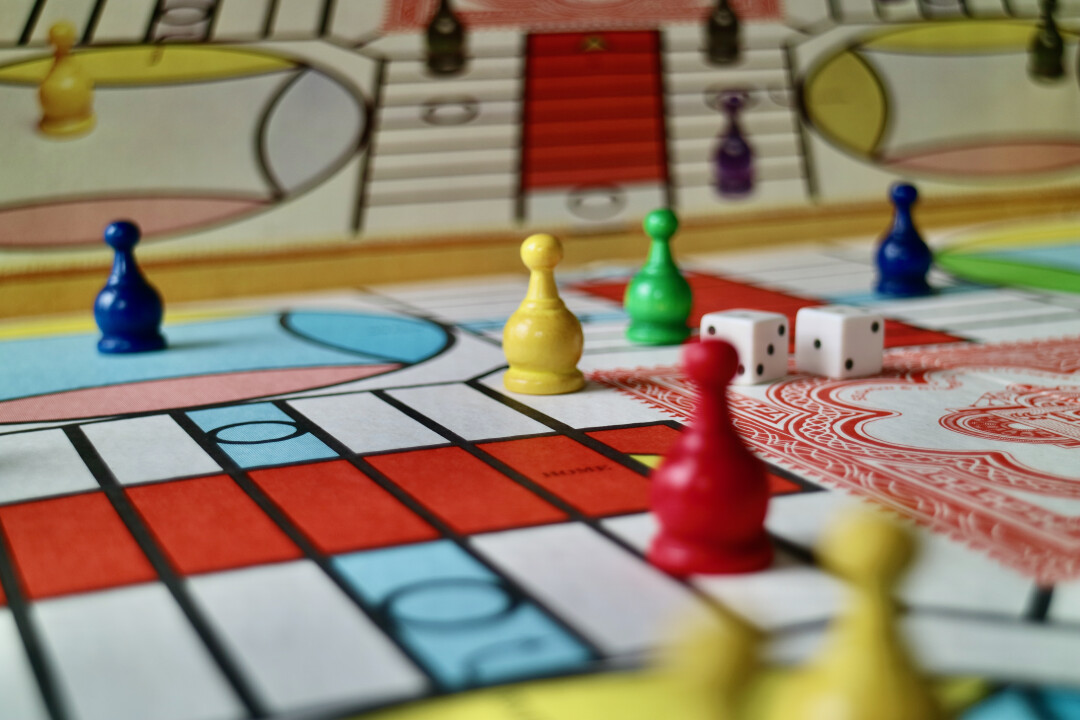Liked the article?
Share with friends!
Games in English lessons

The interactive teaching method has proven to be one of the most effective. The modern education system is developing rapidly and rapidly, which is why it is so important that teachers can adapt the material during the lesson. The use of games in the classroom facilitates the study and memorization of new information. It should be borne in mind that modern games differ in many ways.
The main criteria for selection and holding:
- clear purpose and end result;
- the level of difficulty should correspond to the level of the student's language proficiency;
- compliance with the interests of the child;
- time spending;
- all necessary materials must be prepared in advance;
- debriefing and feedback.
Get your TEFL TESOL certification
Travel, work online, get a job abroad, or be
an EFL and ESL teacher in your country.
Why educational games are an integral part of any educational process? If you paid attention, then even modern business trainings or "team building" for adults include these motives. Not surprisingly, they are the most natural way for children to explore the world.
This is due to the fact that they carry different functions:
- Practical development of acquired knowledge.
- Exercises for teamwork, where there is an opportunity to show personal qualities.
- Entertaining, as a way to switch attention between topics.
- Didactic - obtaining new knowledge.
Depending on the topic and purpose of your lesson, choose the appropriate ones. They should fit the meaning and functions that we have analyzed above. And most importantly, students should like them and motivate them to learn English.
Games in English for children
Games in individual lessons and group lessons, online and offline will be slightly different. However, easily adaptable to all types. The point is to teach new vocabulary and grammar and help to use it in speech. Spaced repetition and visiting without gaps will contribute to the rapid development of English words. Frequent contact with the tongue in different forms will help to make the process natural. The main factor to pay attention to is the age and interests of the students. The more precisely this fits into the child's ordinary life, the more inconspicuous and pleasant the process of memorizing new words will become for him. Interest in new things in students will lead them to significant results in the future. The opportunity to play at school will allow them to feel some freedom and enjoyment from new information.
Classification of games depending on age
For toddlers 3-5 years old:
- physical activity;
- drawing, coloring;
- finger, tactile;
- lexical;
- card;
- poems, songs.
For primary school students:
- mobile activities;
- spelling;
- matching;
- board games;
- reaction and speed exercises.
For high school students:
- board games;
- brain teaser;
- grammatical;
- role-playing.
For high school students:
- collective;
- creative;
- dictation;
- filling in the gaps;
- debate.
Below we have prepared ways to play during an English lesson, depending on the age of the students.
For preschoolers

Young children will not be suitable for tasks related to logical thinking or teamwork. It is still difficult for students aged 3-5 to focus and maintain discipline. That is why it is so important that the teacher can take the work of the class into his own hands. A large percentage of success depends on the emotional component, intonation, fairy-tale characters and tasks that the guys will be able to do. Bright pictures and loud sounds can attract the attention of babies. At this stage, simulation games are just right.
Children at this age learn:
- alphabet;
- letters and sounds;
- animals;
- colors;
- main subjects.
Until students are ready to analyze successes and failures, the task of the teacher is to show them how exciting this language is, to help them use it with ease and interest. If you teach kids and are looking for a way to get their attention and start the developmental process, we have prepared for you a selection of games for preschoolers, including:
- acquaintance;
- food;
- numbers;
- colors;
- body parts;
- animals.
For elementary grades

When teaching at school, many teachers are faced with the fact that children from grades 1-4 quickly get tired of monotony. As a result, in the eyes there is no interest and desire to go to such classes. But if you add fun games and educational games, then the study will take on bright colors. Children need to shift focus from time to time. Since at this age they cannot yet use the language consciously.
They help students:
- activate mental processes;
- get rid of shyness and psychological barrier;
- publicly express your thoughts;
- cheer up and relieve fatigue;
- develop communication skills;
- better listening.
Therefore, we have prepared fun games for primary school students. With their help, you can switch the attention of the guys to something bright and memorable in time.
In the collection you will find exercises:
- Edible / inedible;
- Deaf phone;
- Guess what;
- Grammar detective;
- Captains;
- Pantomime.
- Guess the word;
- Showball.
For middle school

Group games for teenagers differ significantly from exercises for elementary grades. From grades 5-9, children realize the importance of education and communication in a team. It is important to consider that at this age, students will no longer want to sing songs in chorus or portray a broken phone. They are already able to hold attention and be focused. And if the usual exercises in phonetics or grammar can cause them rejection and boredom, then educational games can defuse the situation. Middle school students are more diligent than kids, so they need clear and precise motivation. Since they already have a certain amount of knowledge, an incentive is needed to use the available words and constructions.
Students learn to work in a team and work out:
- spelling;
- Irregular Verbs;
- order of words in a sentence;
- adverbs and degrees of comparisons of adjectives;
- tenses and their combination.
It seems that such an audience is more difficult to please, but it is not. It is enough just to choose interesting tasks that contribute to group work. Use our list of games for middle school students to surprise your students.
For high school

Students in grades 10-11 go through a difficult period of preparation for exams. A large number of extra classes and homework causes them stress. By this time, they are already crossing the border of the average level. There comes a period of working out complex grammatical structures, listening and vocabulary. But knowing the interests of children, even the most boring exercise for a while can be made fun. Educational games for teenagers should focus on communication skills that will be useful to them in real life, as well as when passing exams. The standard true or false or fill in the gaps gets more complicated with new vocabulary and grammar.
The children are introduced to:
- phrasal verbs;
- conditional sentences;
- long texts on topics: nature, animals, health;
- idioms;
- timing agreement.
Get your TEFL TESOL certification
Travel, work online, get a job abroad, or be
an EFL and ESL teacher in your country.
Therefore, it is important to make the study and application of new elements as interesting as possible. Add your favorite actors, singers to grammar and listening. Ask them to describe the plot of their favorite movie or TV series using the past tenses. We have prepared a selection of games in English suitable for high school students. Among them:
- The crocodile game;
- Tongue Twisters;
- Word order;
- Scrabble;
- The story telling game.
Games in English by purpose
As we have already found out, the use of games in the classroom contributes to the comprehensive development of language, thinking and logic. But in such abundance, how to choose what fits perfectly into the lesson plan? Education cannot include only interesting games as the main teaching tool. Such activities are needed for different purposes, as additional tools to learn and use the language. First of all, decide on a theme and purpose.
Answer yourself these questions:
- What will students get at the end?
- What result should they achieve?
- What mistakes are inevitable during the lesson?
- What difficulties will they face?
After that, focusing on the topic of the lesson, you can understand what is 100% suitable.
Types of games for specific purposes:
- pronunciation;
- speech development;
- increasing the volume of vocabulary;
- consolidation of grammar;
- listening.
Grammar

Practicing English tenses is not intended for beginner English learners. They are suitable for children with a basic knowledge base. Unlike vocabulary building, grammar rarely gets students excited. The stereotype of boring rules and parenthesis is still alive, so it's important to show students that everything they learn has a real meaning in life. The main goal is to learn how to make sentences and express thoughts logically. Few people like to keep word order, but if you show the meaning of the right questions, then the efficiency of memorization will increase significantly. Have students parse an interview with their favorite actor, or ask them to come up with questions for their favorite character. Use hypothetical situations. Have them pretend they are on a desert island and tell what they would do using the second conditional. The use of games in grammar lessons is limitless. But in order to save your time searching, we have already prepared interesting and entertaining activities.
This article has grammar games such as:
- puzzles;
- Truth or lie;
- Describe a picture;
- tell the story;
- Lotto;
- Word order.
Use them to make learning grammar easy and effortless.
Lexical

Games in English lessons for learning vocabulary are a double bonus. Firstly, they contribute to the expansion of vocabulary and overcoming the language barrier. Secondly, they help memorize words without boring memorization. The volume of vocabulary increases every time, and if it is not possible to use it in speech, then it will remain in the "passive". Fortunately, activities for practicing and learning vocabulary are so diverse that they can be included all the time. They differ depending on the level of the language, the number of participants and the format. It must be understood that when studying, we only introduce students to words in context, meaning and pronunciation. And already when repeating and fixing, we can use: fill in the gaps or compare. In order not to get confused in the choice, we suggest that you familiarize yourself with our list of vocabulary games. A convenient classification of games by age will help you choose the perfect task.
Spelling

Educational and interesting games are also possible to work on spelling. The spelling of the English language is shocking for both adults and children. Now that it is possible to type on a computer and phone with autocorrect, this skill is increasingly difficult to practice with students. However, we have prepared examples of spelling games. Memory, pronunciation and conversational skills are involved. This is an additional repetition of the vocabulary covered, which is an absolute plus for us. In most exercises, the guys pronounce and spell the words.
Here are some examples:
- The letters crumbled;
- Words with a certain letter;
- word formation;
- Anagrams;
- Insert a letter
- Fillwords;
- Four words;
- Stairs.
Phonetic

Games for phonetics lessons are not like lexical and grammatical ones. But they are related to speech, pronunciation and listening comprehension. If the child pronounces the words correctly, then he will be able to recognize them in the speech of another person. This is a difficult section of linguistics, which we begin to introduce even with babies, showing the difference between letters and sounds. Elementary school students have to combine the sounds of different words to make the sentence sound soft and natural. And older children follow intonation and semantic stresses in speech. This is a gradual process that requires constant practice. The difficulty is reading transcriptions, but this is not always necessary to know the correct pronunciation. However, the modern education system contributes to the study of this aspect. One of the easiest and most popular tasks for phonetics are tongue twisters and poems. In this article, you can choose the appropriate exercises for practicing phonetics according to the level of difficulty.
Task types:
- come up with a rhyme;
- determine intonation;
- fill in the gaps;
- restore order;
- read lips;
- retell.
Role-playing

An interactive method is essential for teaching English. Pre-thought-out plots and scenarios contribute to the emancipation of the participants. They will be able to immerse themselves in the language environment and better understand by ear through communication. Of course, such activities should be well planned. Previously, all preparation falls on the shoulders of the teacher. You will need props, a plan, heroes and tasks to achieve the result. It is important to keep track of time, as sometimes such events exceed the agreed “timing”. Depending on the preparation of students, the teacher gives a clear plan or talks about improvisation.
Such models are good because:
- create a real life situation, not an abstract one;
- provoke the use of grammar in speech;
- start the thought process;
- promote repetition and increase vocabulary.
This can be done in private lessons. But it will be even more fun with a large number of people. If you have not previously used this method with your students, then we suggest you read our article. It contains the most effective role play games.
Movable

There are many ways to break up a monotonous lesson. You can use songs, poems, movies, and cartoons to work on a particular skill. But active games can defuse a tense atmosphere and activate the thought process. In these exercises, students use the vocabulary they already have in a natural way. The main benefit is increased motivation. If such events are held at the beginning and end of classes, students will have positive impressions. Like something entertaining. And next time they will come to him with pleasure. It also contributes to emancipation if the guys are embarrassed to show themselves in public. As we have already mentioned, most often these activities are used when working with preschoolers. Because it's hard for them to sit still. Do not forget that drawing and coloring are also included in such exercises.
Sometimes, the preparation takes longer than the lesson itself. Therefore, we want to help you reduce the time you spend searching for outdoor games. In this list, we have put together active exercises that kids of all ages will enjoy.
Popular tasks like:
- Simon says;
- Tell, show, draw;
- hot ball;
- Stickers;
- Crocodile.
Desktop

Games in English classes are a great solution to increase the motivation of students. Card and board games are good because they are suitable for any age. Many adults love it. Teachers must organize this process to get the desired result. If you plan to repeat vocabulary on a previous topic, then there must be words that students will definitely recognize and remember. If the emphasis is on grammar repetition, then the best option would be to include questions on the structure covered. Remember to follow the golden rule - from simple to complex. All exercises should be suitable for the level of the language and age. The teacher at this time acts as an observer, and does not correct the participants, he only makes notes on the difficulties that they encountered. Already at the end, it is useful to ask the participants' impressions, what seemed difficult and simple to them, what was not enough to win. Such discussions will have a positive effect on the analytical mindset of the child. If you are in doubt about which activity is right for your class, we recommend taking a look at the article. It contains the most exciting and popular selections for children of different ages.
Conclusion
The role of games in English lessons is often underestimated. However, this is not a reason to go from one extreme to another. Exercises from a textbook without pictures, sounds and activities will quickly get bored by students. And 60 minutes of fun will deprive them of the opportunity to learn and analyze the knowledge gained. Keep a balance.
Choosing the right exercise depends on many factors:
- age;
- interests;
- language level;
- level of training;
- time;
- skill;
- goal;
- topic;
- result.
Get your TEFL TESOL certification
Travel, work online, get a job abroad, or be
an EFL and ESL teacher in your country.
The activities you've been introduced to in this article are easy to change depending on the activity. Do not doubt that a well-planned lesson is already 70% success. If students are satisfied and receive new knowledge in full, then the main mission of the teacher is completed. How much depends on good materials and clear instructions. Before starting a new course, make sure you take into account the details that may interfere with learning. But if you still find it difficult to select usefulness for lessons and are looking for opportunities for professional development, then we will be happy to help you. The TEFL / TESOL online course will provide the necessary knowledge in the field of teaching phonetics, grammar and vocabulary. Theoretical knowledge combined with practice will improve the understanding of the teaching process. And you will become confident in teaching your students. You will also have the opportunity to teach abroad with this certificate. To purchase a course with a 50% discount, follow the link. We really hope that in this article you have found inspiration and new ways of teaching in a playful manner. We would love to read your comments on this topic.
